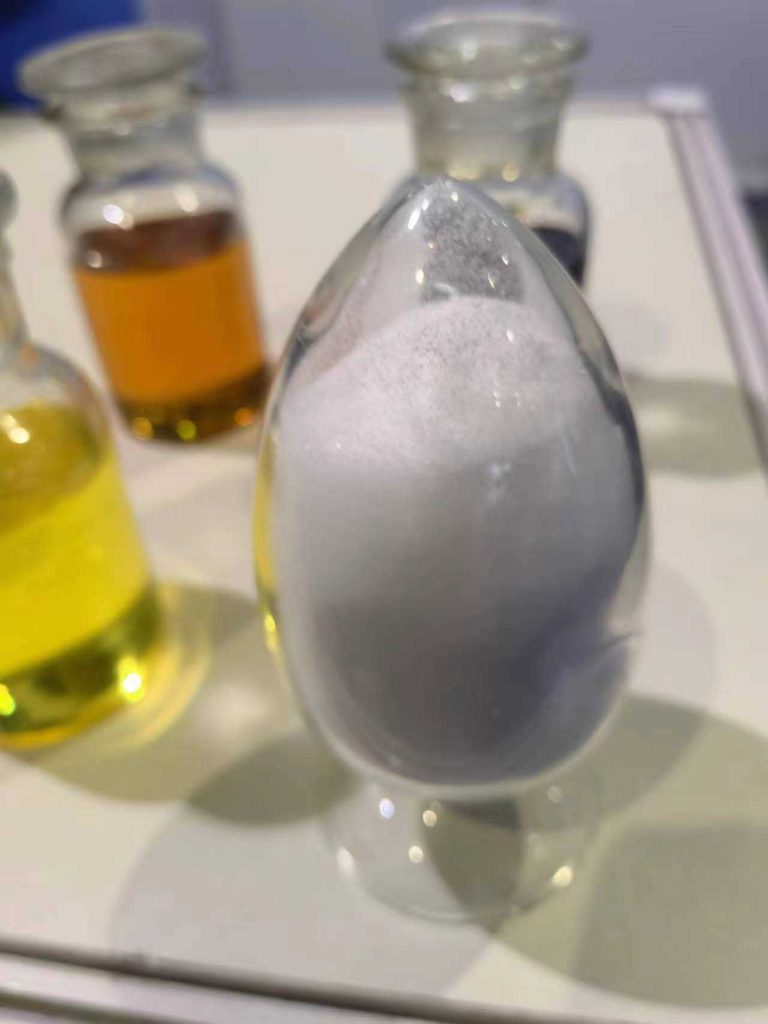ZDDP : Zinc dialkyldithiophosphate
ZDDP : In the world of lubricant formulas, there exists a powerful and essential component known as zinc dialkyldithiophosphate, often abbreviated as ZDDP. This compound is an organic mixture containing zinc and phosphorus and serves as a vital additive in various lubricants, particularly high ZDDP motor oils. Its unique properties make it an exceptional safeguard against wear and oxidation, making it a crucial element in engine maintenance and protection.
When engines operate, they generate heat and exert pressure on moving parts. This can lead to metal-on-metal contact, causing friction and wear on crucial components. Best ZDDP additives steps in as a microscopic hero, forming a glassy, phosphate-based layer under these extreme conditions. This layer effectively fills in the microscopic gaps and irregularities on metal surfaces, resulting in improved lubrication and reduced friction. Consequently, the wear and tear on engine parts are significantly reduced, leading to increased longevity and enhanced performance.
The effectiveness of ZDDP oil additive as an anti-wear additive is particularly notable in heavy-duty applications, where metal-on-metal contact occurs frequently. It acts as a protective shield, preventing harmful interactions between metal surfaces and mitigating the potential for long-term damage. Therefore, ZDDP additives is widely regarded as one of the most reliable and efficient anti-wear additives available in commercially available high ZDDP motor oils.
Oil additive with ZDDP doesn’t just focus on preventing wear; it also exhibits exceptional anti-oxidation properties. When exposed to oxygen and moisture, metal surfaces are susceptible to corrosion and rust, which can compromise engine efficiency and longevity. However, ZDDP’s ability to inhibit rust formation makes it an indispensable protector of metallic surfaces. It creates sacrificial layers composed of glassy iron, zinc polyphosphate, and metal sulfides, acting as a barrier against corrosive elements and preserving the engine’s structural integrity.
What Does it Do?
Zinc dialkyldithiophosphate emerges as a vital ingredient in lubricants, particularly as an anti-wear agent with remarkable engine protection capabilities. Its primary purpose revolves around shielding engines from premature wear and tear, ensuring their longevity and optimal performance. For vehicle owners seeking to extend the life of their engines, especially in older vehicles that demand higher zinc levels than modern oils provide, incorporating a quality ZDDP oil additive becomes a wise and proactive choice.
As engines operate, the interaction between moving metal parts under heat and pressure can lead to friction and wear, resulting in potential damage and reduced efficiency over time. However, ZDDP oil proves to be a microscopic guardian in such scenarios. When added to engine oil, ZDDP oil additive forms a protective phosphate-based layer on metal surfaces, filling in the tiny imperfections and gaps. This fortified layer acts as a barrier, minimizing the abrasive contact between metal components and effectively reducing wear.
The advantages of employing ZDDP oil in engine maintenance extend beyond mere wear prevention. As it curbs the destructive forces of friction, your engine runs more smoothly, promoting improved fuel efficiency and overall performance. This translates to better mileage, potentially reducing fuel consumption and operational costs. Additionally, the minimized wear on engine parts reduces the risk of significant engine damage, particularly as your vehicle ages, leading to more reliable and trouble-free driving experiences.
One of the standout benefits of utilizing ZDDP oil is its suitability for older engines that require higher levels of zinc than what modern oils typically offer. In older engines, the presence of ZDDP provides the extra protection and lubrication necessary to compensate for any wear or inefficiencies that may have developed over time. By using a quality ZDDP oil, you can bridge the gap between what your engine demands and what standard oils can deliver, effectively prolonging the life of your engine and preserving its performance.
Tech 101: Why Does Motor Oil Need Additives?
The primary purpose of engine oil additives is to optimize the motor oil formula, tailoring it to address specific needs and challenges that engines encounter during operation. One of the key areas where additives excel is in wear protection. As engines operate, the metal components are subjected to friction and heat, which can lead to wear and tear over time. Additives act as guardians, forming a protective layer on metal surfaces, minimizing friction, and preventing abrasive wear. This improved wear protection not only extends the life of engine parts but also ensures smoother operation and enhanced performance.
Reduced oil consumption is another critical benefit that additives bring to the table. As engines run, motor oil gradually breaks down and may get burned off or lost due to various factors. Additives help stabilize the oil’s viscosity, preventing it from thinning excessively and reducing oil loss through combustion. This leads to better oil retention within the engine, reducing the need for frequent top-ups and ensuring that your engine stays properly lubricated between oil changes.
Moreover, engine oil additives can target specific issues faced by certain engines or driving conditions. For example, additives can be tailored to tackle sludge formation, which occurs when impurities and contaminants accumulate in the oil, hindering its flow and lubricating capabilities. Special additives can disperse sludge, maintaining the oil’s cleanliness and preserving engine efficiency. Additionally, some additives are designed to combat the detrimental effects of oxidation, preventing the oil from breaking down due to exposure to oxygen and high temperatures.
The versatility of engine oil additives also allows for the formulation of oils suitable for different weather conditions. In cold climates, additives can enhance the oil’s cold-start performance by reducing its viscosity, enabling smooth engine cranking and lubrication during chilly mornings. On the other hand, in hot climates, additives can fortify the oil against thermal breakdown, ensuring consistent protection and performance even in scorching temperatures.
The Basics of Zinc in Lubricants
One of the key functions of zinc in lubricants is its ability to act as a barrier against moisture, effectively preventing rust formation on metal surfaces. As engines and machinery operate, they are exposed to varying environmental conditions, including humidity and moisture. These elements can lead to the corrosion of metal components, compromising the engine’s efficiency and lifespan. Zinc, particularly in the form of ZDDP oil, forms a protective layer on metal surfaces, creating a shield that resists the intrusion of moisture and the subsequent formation of rust. By doing so, it preserves the structural integrity of the engine, ensuring long-lasting performance and reducing the risk of costly repairs.
Moreover, zinc’s anti-wear properties make it a crucial asset in lubrication, especially in areas where the oil film is thin due to demanding operating conditions. Under mixed lubrication conditions, where contact between surface asperities is intermittent, ZDDP oil exhibits its reactive prowess. When occasional contact occurs, engine oil with ZDDP additive specifically reacts with the surface asperities, reducing the number of contacts between metal components. This mechanism effectively acts as a boundary lubricant, preventing direct metal-to-metal interactions and minimizing wear in critical areas.
In scenarios where the engine operates under high loads that surpass the oil film’s capacity to maintain separation, the risk of friction welding becomes a concern. Friction welding can occur when the pressure and lack of adequate lubrication cause localized welding between contacting surfaces, leading to damage and reduced efficiency. However, engine ZDDP engine oil additives once again emerges as the hero, as it reacts with the metal surfaces in these high-pressure conditions, forming a protective layer that prevents friction welding. This remarkable capability ensures that the engine remains protected even under extreme operating conditions, extending its lifespan and maintaining peak performance.
Do I need ZDDP?
Classic cars, hot rods, and older muscle cars often feature flat-tappet camshafts, where the cam lobe comes into direct contact with the tappet or lifter. In such engine designs, the presence of ZDDP becomes particularly crucial. Flat-tappet camshafts are more susceptible to wear and require additional protection to preserve their longevity. Best ZDDP oil additive’s anti-wear properties are exceptionally beneficial in this context, as they form a protective layer on camshaft surfaces, minimizing the risk of premature wear and ensuring smooth operation.
For performance cars, zinc levels in the engine oil play a significant role. Higher zinc concentrations are often preferred for these vehicles to enhance wear protection, especially under high-stress conditions. However, maintaining the right balance is key, as too little ZDDP oil won’t offer sufficient anti-wear protection, leaving the engine vulnerable to premature wear. On the other hand, excessive zinc levels can lead to a phenomenon known as ‘over-plating,’ where engine oil with high ZDDP forms on engine components, potentially leading to increased friction and wear.
Another crucial consideration when using oil additive with ZDDP is its impact on emission control devices, such as catalytic converters. High levels of oil additive with ZDDP in engine oil can prove detrimental to these emissions systems, hindering their efficiency and potentially causing damage. Therefore, it is essential to strike a balance between the beneficial anti-wear properties of engine oil with best ZDDP additive and its potential impact on emission control devices, especially in modern cars equipped with advanced emission control technologies.
ZDDP Motor Oil Additive: Engine Oil Additives
Welcome to consult our ZDDP oil additive and apply them to your different lubricants or engine oils.

